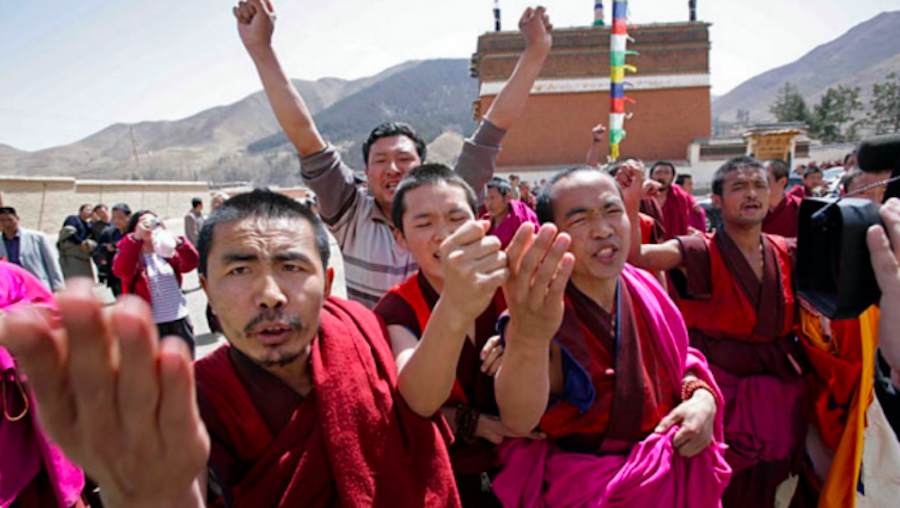By Tsering Dhundup
DHARAMSHALA, April 11: Chinese authorities have distributed a training manual to Tibetan Buddhist monks outlining strict guidelines to be followed in the event of the Dalai Lama’s death, in the so-called Gansu province, a region which includes a large part of the historical Amdo province of Tibet. The manual, which contains 10 rules, prohibits activities such as displaying photos of the Tibetan spiritual leader and engaging in “illegal religious activities and rituals” reported Radio Free Asia.
According to a source from inside Tibet who requested anonymity due to safety concerns, the manual also forbids monks from disrupting the process of recognizing the Dalai Lama’s reincarnation. Issued to monks in Kanlho Tibetan Autonomous Prefecture in the historical Amdo region of Tibet, the manual reflects Beijing’s ongoing efforts to suppress religious freedom among the Tibetan people, experts and rights groups say.
Among the directives outlined in the manual are prohibitions against activities that undermine Chinese national unity, hurt social stability in the name of religion, or involve cooperation with Chinese-claimed separatist groups outside the country. Monasteries are warned against allowing illegal organizations or institutions to enter their premises and are instructed to ensure that the education system for monks does not contain elements of “separatist ideology.” Beijing claims that the Dalai Lama is a separatist and his ideology is separatist ideologies, despite overwhelming support and reverence for the exiled Tibetan leader.
The manual further mandates that monks refrain from promoting “separatist ideas” or disseminating “separatist propaganda” through various mediums such as radio, internet, television, or other means. Deceptive practices, whether overt or covert, are also condemned. Kanlho Tibetan Autonomous Prefecture in Gansu province, where the manuals were distributed, is home to approximately 415,000 Tibetans who predominantly speak the Amdo dialect. The province oversees around 200 large and small monasteries.
During a recent visit to Kanlho Tibetan Autonomous Prefecture, He Moubao, the secretary of China’s State Party Committee, emphasized the importance of Sinicizing religion among Tibetans and implementing the Chinese Communist Party’s policies on religious work. He stressed the need for monks to uphold national unity and social stability.
China’s annexation of Tibet, which began in 1951, is characterized by strict governance, with Beijing asserting its authority to select the next spiritual leader of Tibetan Buddhists. However, Tibetans maintain that the Dalai Lama chooses his reincarnation, He has said on several occasions that his successor would come from a free country without Chinese interference.
Recently in Dharamsala during a long life prayer ceremony, the Dalai Lama assured hundreds of Tibetans of his good health and expressed his determination to live for more than 100 years. Despite Chinese authorities’ efforts to exert influence over Tibetan religious practices, the Dalai Lama’s influence and spiritual leadership continue to resonate deeply among Tibetans both within Tibet and in exile.










